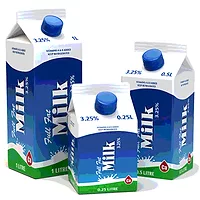The Evolving Landscape of Food Additives Regulation in the U.S., from the States to FDA

In recent months, one developing topic has captured the attention of manufacturers, the U.S. Food and Drug Administration (FDA), legislators, and consumer protection agencies—food additive regulations in the U.S. This article discusses the recent wave of state bills on food additives, FDA’s activities in an effort to get ahead of an inconsistent patchwork of legislation, and criticisms about these bills voiced by legislators, regulators, and industry stakeholders.
The California Food Safety Act and Copycat Legislation
The California Food Safety Act, passed in October 2023, bans foods containing four possibly toxic chemical additives from being sold or manufactured in the state, beginning January 1, 2025. These additives are red dye 3, potassium bromate, brominated vegetable oil (BVO), and propylparaben, which have been linked to negative human health consequences such as increased risk of cancer, behavioral issues in children, harm to the reproductive system, and damage to the immune system. Not only does the passage of this bill have nationwide—and even global—implications on its own, as it affects the hugely significant California market, the Act has also opened the floodgates for the introduction of many similar pieces of legislation in various states. This activity has piqued the interest of FDA as well, and has prompted the agency to reassess its approach to food chemical safety and review the chemicals targeted in the California Food Safety Act, among others.
Since the passage of the California Food Safety Act, copycat legislation has popped up in New York State, Illinois, Missouri, and Washington. These bills aim to prohibit the same food additives targeted by the California Food Safety Act. The bill introduced in New York also includes titanium dioxide, which was originally included in the California Food Safety Act but was edited out prior to passage, due to debate about its harm to human health when consumed as a food-grade additive. The New York bill has also been amended since its introduction, now including butylated hydroxyanisole (BHA) and azodicarbonamide.
Additionally, Illinois Senator Willie Preston, a sponsor of the legislation introduced in Illinois, expressed that he intends to work to get titanium dioxide included in his bill. Unlike the California law, however, Illinois’ bill would exempt manufacturers, focusing on banning the targeted additives through retail sales. (Update: April 19, 2024: The Illinois bill has passed the state Senate and been progressed to the House, with an amendment that now includes manufacturers in the legislation).
New, Unique, State-Level Additives Bills
The emerging patchwork of state legislation on food additives has not stopped with the copycat California Food Safety Act bills—unique pieces of legislation have been introduced in Pennsylvania, California, and New York State. In February 2024, New York Assembly Bill A9295 was introduced to require businesses to notify the State of New York before determining a substance to be “generally recognized as safe,” or GRAS, and marketing that chemical in New York. Businesses would have to submit a summary of evidence for why the substance is safe, and these notifications would be published in a public database funded by reporting fees and maintained by New York State. The bill is designed to prevent industry from exploiting GRAS determination—a regulatory “loophole” that state legislators behind the slew of recent additive acts have taken issue with and blamed for allowing possibly harmful additives to enter into the food supply.
Looking for quick answers on food safety topics?
Try Ask FSM, our new smart AI search tool.
Ask FSM →
For example, California Assemblymember Jesse Gabriel, who spearheaded the California Food Safety Act, named GRAS as a reason for writing his law, explaining that many chemical food additives have never been independently evaluated by FDA. However, at the time, FDA responded with its own statement refuting that GRAS is an exploitable loophole, at least as it relates to the additives targeted by the California Food Safety Act.
Going back to unique additives legislation, in Pennsylvania, two bills introduced in March 2024 aim to ban two different sets of chemicals from being used as food additives in the state. Pennsylvania House Bill (HB) 2116 would restrict red dye 3, red dye 40, yellow dye 5, yellow dye 6, blue dye 1, and blue dye 2. The second bill, HB 2117, targets potassium bromate, BVO, and beta hydroxy acids (BHA).
Additionally, in California, a new bill was introduced in February 2024 by Assemblymember Gabriel with the goal of protecting children from different additives—mostly colorants—by prohibiting their use in foods offered in public schools. If passed, California Assembly Bill 2316 would ban seven ingredients from public school breakfasts and lunches, six of which are artificial food dyes associated with hyperactivity and behavioral issues—blue 1, blue 2, green 3, red 40, yellow 5, and yellow 6—as well as titanium dioxide, which is suspected to be genotoxic.
The toxicity of titanium dioxide is a matter of recent debate. For example, in the EU where titanium dioxide is banned as a food additive, an EU court annulled the European Commission’s 2019 classification of the chemical as a carcinogen. FDA also maintains that titanium dioxide is safe as a food additive, while, in a recent safety assessment, the Food and Agriculture Organization (FAO) and World Health Organization (WHO) were unable to specify an acceptable daily intake for the additive due to insufficient data.
Subsequent FDA Food Chemical Safety Activity
Although the jury is still out on titanium dioxide, there is more substantial evidence of the harms to human health associated with many of the food colorants and additives included in the various bills cropping up across the U.S., and FDA is responding accordingly. In November 2023, shortly after the passage of the California Food Safety Act, FDA proposed to revoke the regulation that authorizes the use of BVO in food based on agency research conducted in collaboration with the U.S. National Institute of Environmental Health Sciences’ (NIEHS’) Division of Translational Toxicology, which resolved toxicological data gaps about the additive. Data from the studies show thyroid damage from BVO in animals at levels that closely approximate real-world human exposure. In its announcement about the proposal to revoke the regulation authorizing BVO, FDA recognized California’s recent ban of the additive, and stated that the agency is “continuously reviewing and reassessing the safety of a variety of chemicals in food to ensure the science and the law support their safe use in food, including all four ingredients that are part of the recent California law.”
At the same time, FDA also announced its intention to review three other possibly toxic food additives that were recently banned in the state of California, specifically: red dye 3, propylparaben, and potassium bromate. A review of red dye 3 is underway at the time of this video’s recording. This work also falls under FDA’s recent efforts to conduct a modernized, systematic reassessment of chemicals added to foods with a focus on post-market review; the agency is also working to implement an enhanced approach to regulating food chemical safety, including a revamped framework for systematic post-market chemical reassessment.
Stakeholder Pushback to Wave of State Additives Legislation
Although many consumer advocacy groups and consumers laud the recent wave of state legislation banning possibly toxic chemicals from foods, just as many industry groups and regulators have raised issue with the emergence of an inconsistent patchwork of state regulation, criticizing the decisions for not being based in science and pointing to the confusing implications for industry. In a March 2024 resolution, Kentucky legislators urge FDA to “mandate and enforce a prohibition on U.S. food manufacturers producing or selling food containing harmful ingredients that have been banned by several other countries,” stating, “the health and safety of all Americans is the central tenant of FDA's mission and the main goal of its governance, and enforcing the ban of known toxic and harmful ingredients produced in the U.S. and sold to Americans should therefore be FDA's priority.”
In a September 2023 op-ed written for the Orange County Register, anticipatory of the California Food Safety Act’s passage, Frank Yiannas, former FDA Deputy Commissioner of Food Policy and Response, wrote, “I appreciate the California legislature’s desire to protect its citizens by banning certain food additives… however, while this action is well-intended, if enacted, it does set a dangerous precedent on how food safety standards in our nation are best established... The country needs a strong FDA—working in close collaboration with the States—to manage the scientific rigor needed to evaluate the safety of food involved in interstate commerce. Without relying on a strong, science-driven federal food safety agency, our country is left with a state-by-state patchwork of different, emerging regulatory standards that would weaken our nation’s food system and food safety efforts.”
The National Confectioner’s Association (NCA) has also been strongly advocating against the wave of state proposals to ban certain FDA-approved food additives. John Downs, NCA President and CEO, stated, “Some states are proposing to dismantle our well-developed national food safety system in an emotionally-driven campaign that lacks scientific backing. FDA needs to assert its authority as the rightful national regulatory decision-maker and leader in food safety.”
Finally, the Institute of Food Technologists (IFT) has been busy in its educational efforts about food additives, recently announcing a new food additives toolkit full of myth-busting information about additives, a special collection of scientific papers diving into additives and preservatives, an upcoming webinar about FDA’s food ingredient regulatory programs, and other resources. Alongside the release of its new toolkit, Bryan Hitchcock, IFT Chief Science and Technology Officer, stated, “Food additives not only help improve shelf life and reduce microbiological growth, but help ensure a safe and affordable food supply while also reducing food loss and waste. But as the addition of these ingredients has increased over the years, so has confusion, leading states to propose legislation to ban certain food additives in conflict with federal regulations.”
Learn More from a Top FDA Official and a Food Industry Legal Expert
For more information about this topic, check out Episode 162 of the Food Safety Matters podcast featuring Brian Sylvester, J.D., Partner in Perkins Coie LLP's Washington D.C. office and former U.S. Department of Agriculture (USDA) Attorney-Advisor, who discusses the nationwide ramifications and precedent set by the California Food Safety Act.
Additionally, for even further insight into FDA’s work to get ahead of state regulations with a more ambitious chemical safety agenda, including how the proposed Office of Food Chemical Safety, Dietary Supplements, and Innovation will handle chemical safety assessments in the future after the unification of the Human Foods Program, listen to the latest episode of the Food Safety Matters podcast featuring Jim Jones, FDA’s first Deputy Commissioner for Human Foods, titled, “Ep. 167. James (Jim) Jones: Engaging Stakeholders for a Unified FDA Human Foods Program.”









